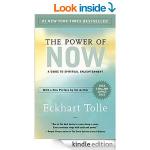I remember the moment that I truly realized how mean I was to myself. Granted, I always knew that I was self-destructive, but for some reason, I failed to connect the dots in regards to what that meant. It was my first retreat to Bodega Bay with my community service group. There were more than 30 girls in a single house, all of us connected by a desire to help the children in our area. We laughed, played games, worked on business for the following year, and discussed issues that our club was facing. I felt close to all and bonded with a few.
While in bed, I began to think of where I was a few years ago, isolated and lonely versus now, surrounded by likeminded people who couldn’t get enough of me. I was proud that I accomplished so much emotionally and mentally. However, I noticed that evening how shy I was with compliments and with peoples’ admiration so I asked myself why.
When I couldn’t answer the why, I started to cry. No huffing or hawing, the tears streamed down in aching silence. This wasn’t about self-pity. It was an admission. I was cruel to myself.
I always thought it was funny that I didn’t need alcohol or drugs to be my own worst enemy. No, no, no, I managed to be perfectly and ridiculously dysfunctional with my worst habit being too much coffee. For decades, I saw the aftermath of my poor choices and wondered what in tarnashins was driving me. But, the answer continued to evade as I fell into the guilt of my continued self destruction.
Look, I noticed my dysfunctional behavior for as long as I could remember. But, most Americans were dysfunctional so I thought it was a cultural commonality. However, that night, I saw this wasn’t about mainstream America. This was about me.
Earlier in the evening, as I spoke with my fellow service members, I recognized the difference in what they expected for me versus what I expected for myself. It was night and day. For example, they thought I was single because I was picky as I should be because according to them, I was a catch. When in truth, I was single because I kept choosing men that were overtly unhealthy so for the last five years, I stopped dating altogether while I worked with my therapist in regards to my poor choices.
For years, I thought that maybe I was hiding in others’ dysfunction in order to conceal my own issues. I used to tell my little sister, “Sometimes, we date people unhealthier than ourselves because they make us look healthy, less troubled. We can focus on their problems rather than our own.” While I cried in bed, I realized this was not the case. I wasn’t hiding my issues. I was hiding my potential for happiness. Clearly, I wasn’t valuing myself.
This was the moment that I fully realized what being my own worst enemy meant. It meant that I didn’t think I was deserving of the good in this world. Maybe my past had something to do with it, but here was the reality; I couldn’t change what has already happened. What I needed to do was realize that my past was lowering my expectations in the here and now. This shifted my focus onto something that I could change, the present.
After this retreat, I began to question if I was being valued in every one of my relationships whether work, boyfriend, friend, and acquaintance. If I felt conflicted or upset, I started reflecting on these feelings rather than sweeping it under the rug as though I deserved it. Instead of asking others if I was worthy, I began to wonder if they were worthy of me. These questions pulled me out of the past and forced me into the present, which changed everything!
Please understand, I didn’t magically stop attracting dysfunctional people into my life. It was not that easy. Asking these questions, though, did help me to recognize the unhealthiness of my relationships much quicker. At first, I saw the disparity of my associations within months rather than years, then it became weeks and eventually, days and even hours. Soon enough, my dysfunctional relationships were replaced by healthier ones. I had freed myself from a devalued prison of my own making.
The reason that I’m writing about this is there’s an unreasonable belief that if you’re healthy, dysfunction will bounce off of you like your rubber, but that’s not the case. Self-destructive people can slip under the radar even to the healthiest of people. So, don’t beat yourself up while transforming your perspective. It happens and that’s o.k. The important thing is to realize that all of us deserve the good in this world and our relationships should reflect that. By asking the question, “Is this worthy of me,” you are creating a kind way of being valued by those around you, which is a doorway to a better life and a better self.


